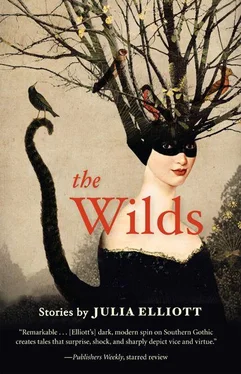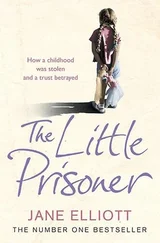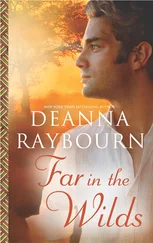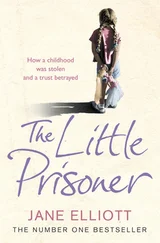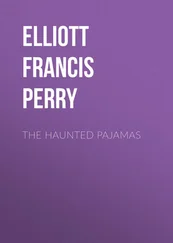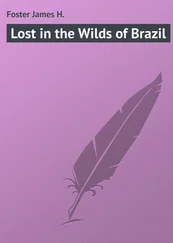I wondered if Dr. Vilkas would’ve asked this question in the businesslike bustle of a coffee shop, or at school, in the fluorescent brightness of my portable.
“No,” I mumbled. “I mean, probably not. I seriously doubt it. Though I guess it’s not impossible.”
My cheeks felt hot. I vaguely remembered having sex with my husband once in the last month, late one night on the couch, struggling to concentrate, fidgeting to achieve a comfortable position, the television buzzing on mute.
“I don’t mean to pry into your private life, but pregnancy would explain an intensification of olfactory perception.”
Dr. Vilkas smirked again. He smiled at the oddest times, undercutting the professionalism of his words.
I imagined him scrawny and naked, moving toward me with the purple heat of his erection, his chest narrow, hairless except for a few wisps around his nipples, his thighs shaggy, his fingers splayed to clamp my shoulders, to hold me steady for a proper mount. I saw myself drawing my knees up. I could smell the bleach in the motel sheet. And there would be other smells, intimate and bodily, pumped from his glands and blending with odors of feral dog. His breath would also have an odor, a mix of food and toothpaste and the health of his mouth, bacterial colonies, his tongue and gums seething with organisms, infinitesimal animals bursting with the drive to swarm. The room would reek of his equipment, plus the ghostly effluvia of inhabitants past — layers of eagerness and disappointment, ecstasy, bitterness, rage — feebly radiant but there, almost pulsing.
His wallet on the nightstand. His underwear on the floor.
“I’ve got to go,” I said, pulling cash from my purse, stacking it in front of me, wrinkled and grubby with the sweat of a million human hands.

“What?” said my husband, for I had kissed him on the mouth; I had probed with my tongue until tasting the animal depths of him, hoping to pull this part of him out into the waning day. But he fiddled with his electric fence, which had a short, and I was tipsy, my heart getting ahead of itself, red leaves fluttering down from the maple trees.
“You’ve been drinking,” he said.
“Just a cocktail,” I said, “with a few of the teachers, after the workshop. But look at me now: I’m home.”
I was pacing in little circles around him.
“And we should do something,” I said. “Go somewhere, maybe?”
“Where?”
“I don’t know. A walk?”
“What about the dogs?”
“Take your stun gun. That would be fun.”
“I don’t feel like it,” he said. “I’m kind of involved with this. And it’s about to get dark.” He turned back to the manual that had come with his electric-fence system.
“Well, I’m going,” I said, taking big strides away from him. I was crossing the street now, dipping into the gulch where the mini-McMansion had sprouted up overnight. I looked back, half expecting to see my husband scrambling after me, but apparently the idea of wild dogs tearing me to pieces didn’t bother him, or perhaps he hadn’t even seen me stalking across the street with my fists clenched.
I started to run. I jogged into the scrap of woods where a doe had been killed by a dog pack just last week, hunted and cornered and stripped of flesh, her bones cracked open and scattered. It was getting dark, and the terror I felt was like a ringing in my blood, an addictive stirring of something I hadn’t felt in a long time, ancient feelings pouring from deep nooks of my brain. I could run forever, I thought, and I kept going, scrambling up a weedy hill until I reached the top. I watched the sun sink into the pond of an empty golf course, and then I sat in the dark for a spell, wondering what to do.

The next week a cold front came, and my students arrived bundled, their winter things musty from summer storage, their eyes lit with the false promises of different weather. The old heat pump groaned. Smells of burnt dust floated up from the vents. The children were squirmy. And my mind kept going blank. The words on the pages of my books would blur, and I’d squint up at the children’s faces, forgetting why I was confined with so many restless young mammals. Each day I turned off the lights. I showed them films about dogs— Benji, Lassie, Cujo —making their minds converge into a single entity — gray, staticky, amorphous — and their bodies sit still.
I saved Cujo for after lunch, the most difficult period, and it seemed that the reign of terror held by the crazed slavering dog would never end, that Cujo had always ruled the endless afternoon with his fury and red snapping mouth. But then, by two o’clock on Friday, the dog lay dead. His exhausted hostages were finally crawling from their dusty Ford Pinto into the harsh summer sun. My students were finally filing out into the cold bright day. And Dr. Vilkas was finally standing outside my portable, hunched in his army jacket, his face freshly shaven and vulnerable looking, like the skin of a baby mouse. The wind flapped his hair, and I could see the crow’s feet that etched the corners of his eyes, a sprinkling of dandruff in his dark hair, two cuts on his chin.
“I called you,” he said.
“Oh, yeah. We were. . I mean. . installing an electric fence. All week.”
“About the experiment, of course.”
“Experiment?”
“Your preolfactory neurological sensations and detection of canine activity.”
“Right.”
“Whenever you’re free, we could set something up.”

“People tend to romanticize so-called wildness,” said Dr. Vilkas, who did not drink so much as open his mouth and splash wine down into his dark, gurgling throat. “So when a dog joins a feral pack, it does not, in any sense, break free — it simply exchanges one set of rules for another.”
“Yes,” I said, sipping my wine carefully. I could feel dark vapors dancing up from what was probably the reptilian part of my brain.
We were in his room at a Hampton Inn, the butter-yellow curtains drawn, sitting at a little breakfast table beside the window in a cone of lamplight, two beds floating in the darkness beyond, one of them rumpled, the other pristine. The vinegary smell of our sub sandwiches hung in the air. And I thought I could detect a faint, sulfuric whiff of dog lurking beneath the food odors and the sick fruity tang of an air freshener.
Dr. Vilkas insisted that a few drinks sharpened his intuition, that a little wine helped him think about the dogs in refreshingly new ways, and that sometimes, on certain evenings, when his brain chemistry conspired to make his head glow, he could figure out the whereabouts of one of the largest feral packs. This is all he would reveal about his dog-tracking techniques. When I pressed him, he answered me with his trademark smirk. He twiddled his thumbs in a way that I imagined would become annoying to someone who knew his tics. He tossed more wine into his maw.
And then, padding around me in his stocking feet, smelling of wet wool and wine and the deeper animal brine of armpits, he applied wireless electrodes, metal sensors the size of fleas, to my scalp, sifting through my hair with his fingers. He put on his boots. He sipped the last of his wine and smiled. Wearing my EEG helmet, I followed him out into the night — big, bright moon, sweater weather, a single cricket chirring in the shrubs. He cleared a spot for me on the seat of his jeep, brushing crumpled Hardee’s bags to the floor.
We drove toward the river, asphalt turning to tar and gravel. Hitting rocky dirt, we bounced along, the road flanked by meadows of dead goldenrod. An electrical substation loomed ahead, three fat transformers rising up like old-fashioned robots. Dr. Vilkas had a little can of Comfort Zone with DAP — dog-appeasing pheromone, a synthesized version of the stuff produced by lactating bitches to calm their young — and we sprayed the tart substance on our clothes. We walked deep into the meadow, down to the river, where the dogs sometimes slept, the goldenrod trampled, the air musky and ammoniac, tinged with a familiar, fried, salty smell.
Читать дальше
